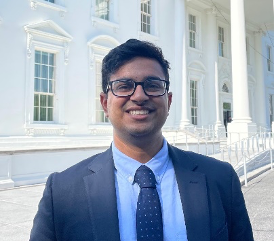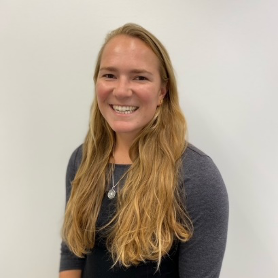
Meet ARPA-E's 2022 Summer Scholars
Every year, ARPA-E’s Summer Scholars have the unique opportunity to interface with ARPA-E Program Directors, Technology-to-Market (T2M) advisors, and Fellows working on the nation’s foremost energy challenges. Summer Scholars participate in a whole host of activities and take on various responsibilities during their time at ARPA-E. The goal of their work is to assist the team in defining commercialization pathways for high-risk, high-impact technologies to help those technologies achieve maximum impact and return on investment.
Learn more below about what each 2022 Summer Scholar has accomplished during their time at ARPA-E, the skills they have developed, the technical areas they have worked in, and what they are looking forward to in their career.
Krishna Bharathala
Stanford University, Graduate School of Business and Doerr of School of Sustainability
MBA and MS, Environmental Resources
LinkedIn | Krishna Bharathala
This summer, I am conducting a market analysis of the Advanced Air Mobility sector as it relates to decarbonizing passenger air-travel. Through interviewing over a dozen executives at private companies in the sector, we have identified the key challenges and opportunities they face. When combined with our techno-economic analysis of vehicle and fleet profitability, the market analysis can inform capital deployment decisions in the future. After graduation, I plan to join a sustainability startup working to address difficult-to-decarbonize sectors (like aviation!)
Victoria Boatwright
Scripps Institute of Oceanography
PhD, Oceanography, Climate Science, Fulbright Fellow
LinkedIn | Victoria Boatwright
During my time at ARPA-E, I performed research on state-of-the-art ocean biogeochemical models and data assimilation to identify metrics and notional goals for a developing program on monitoring, reporting, and verification of ocean carbon dioxide removal methods. I developed skills in techno-economic analysis around estimating an anticipated marine carbon market and cost scalability for model-observation systems. My research will inform the program goals and the internal pitch metrics for the ocean sensing project. I also helped shape the program development to incorporate an end-to-end integrated funding opportunity announcement that requires model-observation assimilation. In my career, I look forward to pursuing ocean research with applicable results for climate solutions, from ocean carbon dioxide removal to offshore wind to fisheries management.
Kate Champion
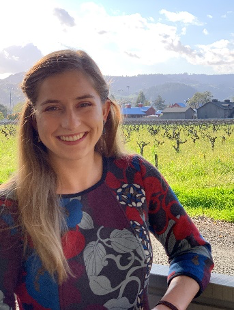
Columbia University, School of International and Public Affairs
MPA, Environmental Science and Policy
LinkedIn | Kate Champion
I helped support the effort to include macroalgae in the DOE Billion Ton report, which characterizes how the US could produce a billion tons of biomass for bioenergy. I helped provide data and insights about macroalgae cultivation that were learned through ARPA-E’s MARINER program. I also supported one MARINER performer, Ocean Era, in valorizing seaweed as an additive to fish feed as a commercialization opportunity. In the long term, I am looking to go into a PhD program in economics and public policy, and I am looking for positions that would allow me to research the economics of the energy transition, the role of policy in technology development, and/or policies for more sustainable cities.
Gui Larangeira
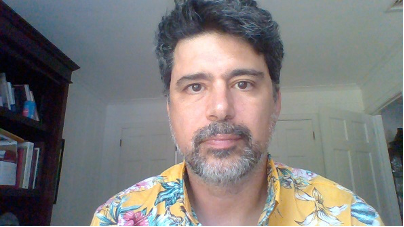
Stony Brook University
PhD, Technology and Innovation
LinkedIn | Gui Larangeira
This summer, I performed a techno-economic analysis (TEA) of wireless power transfer (WPT), also known as power beaming. One special application of WPT that I focused on is space-based solar power (SBSP). The main advantage of SBSP over terrestrial solar energy is that it is renewable while providing a continuous baseload power source (like coal or nuclear.) I built a model to calculate the levelized cost of energy for SBSP to compare it with terrestrial solar power.
When I am not building TEA models of new energy technologies, I like to spend my time with my wife and two kids and cycle the hilly roads of NY, NJ, and CT, where we live currently.
Grant Opperman
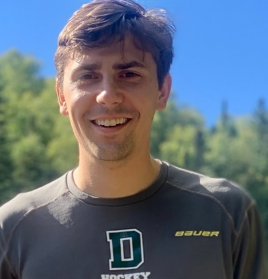
Columbia University, Columbia Business School and the School of International & Public Affairs
MBA and MIA, Energy and Environment
LinkedIn | Grant Opperman
By speaking with dozens of founders, investors, scientists, researchers and academics in the carbon sequestration and storage field, ARPA-E T2M Advisor Kirk Liu and I were able to develop a framework for determining a specific technology’s carbon price range. We plan on applying our framework when evaluating funding candidates for ARPA-E programming.
After graduate school, I am hoping to go back into the investing world with a focus on energy and climate. My time at ARPA-E this summer allowed me to work alongside thought-leaders and founders of innovative climate technologies toward the goal of large-scale climate impact via commercialization.
Sarah Orsborn
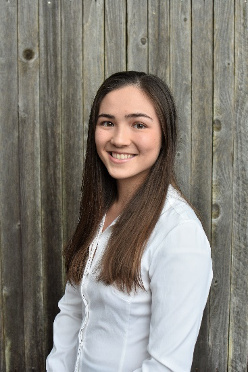
University of Southern California
BA, International Relations & Economics
LinkedIn | Sarah Orsborn
At ARPA-E, I have been researching critical minerals and deep-sea mining by exploring trade relations, international negotiations, domestic laws, and environmental concerns. I primarily focus on legal research and case studies and have learned a lot from speaking with technical and policy experts in the field. I enjoy consulting with decision-makers to translate complex findings into actionable results, especially around issues related to climate change and public health.
Jackson Pilutti

University of Michigan, Ross School of Business
MBA, Emphasis on Social Impact
LinkedIn | Jackson Pilutti
I am thrilled to support the T2M team developing ARPA-E’s point of view on advanced air mobility—electric vehicle takeoff and landing vehicles, unmanned aerial vehicles, and more—with a particular emphasis on moving goods (exploring how “flying cars” might decarbonize our transportation economy). While at ARPA-E, I have focused on identifying market trends in advanced air mobility, developing market sizing for cargo business models, and researching technological and economic barriers to adoption.
This work fits perfectly with my career focus, which sits at the intersection of technology, business, and social impact: supporting societally beneficial technology development.
Ethan Woods
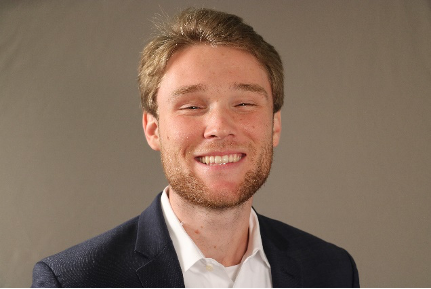
North Carolina State University
PhD, Biological and Agricultural Engineering
LinkedIn | Ethan Woods
At ARPA-E, I developed the skill of forward thinking, attempting to identify how to assist a future field or technology while it is still in its early stages. This summer, I worked on the concept of prioritizing carbon capture and storage in agriculture. Within this area, I was tasked with identifying ecosystem services which would be impacted by a transition to high productivity “carbon farming” crops. I also created a map which highlights lands that would be most ideal for carrying out this transition. I plan on starting a company that develops a new technology or process for capturing carbon dioxide to help fight climate change.
As you can see, our summer scholars have accomplished a lot during their summer at ARPA-E, from identifying market trends in advanced air mobility to developing notional goals for future CO2 removal programs. We thank them for their hard work and look forward to seeing what else they accomplish in the future!

